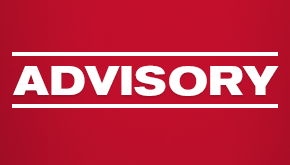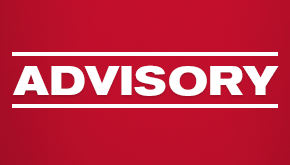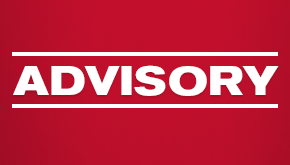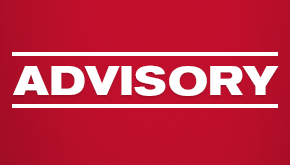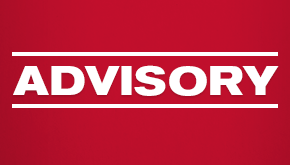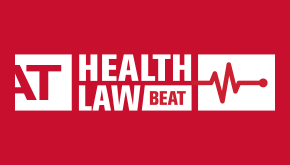AT Health Law Beat, March 2023
On a quarterly basis, Armstrong Teasdale’s Global Health Law practice will share key industry news and developments, relevant upcoming events and more to help clients and contacts address the consistently evolving nature of the health care space. Please contact us with any questions.
FTC Begins Enforcement Actions for Violations of the Health Breach Notification Rule
On Feb. 1, 2023, the Federal Trade Commission (FTC) announced its first enforcement action under its Health Breach Notification Rule (the Rule). The Rule’s breach notification provisions apply to vendors of personal health records and their third-party service providers, pursuant to section 13407 of the Health Information Technology for Economic and Clinical Health (HITECH) Act.
The FTC’s first enforcement came against the telehealth and prescription drug discount provider GoodRx Holdings Inc. for sharing sensitive personal health information with advertising companies and platforms—contrary to its privacy obligations. To compound the problem, GoodRx failed to notify consumers and others of its unauthorized disclosures of their personal health information to Facebook, Google and other companies. GoodRx will be prohibited from sharing user health data with applicable third parties for advertising purposes, and has agreed to pay a $1.5 million civil penalty for violating the Rule.
On March 3, the FTC announced its second enforcement action under the Rule. BetterHelp, Inc., an online counseling service, will be banned from sharing consumers’ health data, including sensitive information about mental health challenges, for advertising. The company will also be required to pay $7.8 million to consumers to settle charges that it revealed consumers’ sensitive data with third parties such as Facebook and Snapchat for advertising after promising to keep such data private. This is the first settlement that will return funds directly to consumers whose health data was compromised.
In addition, the FTC’s proposed order will ban BetterHelp from sharing consumers’ personal information with certain third parties for retargeting—the targeting of advertisements to consumers who previously had visited BetterHelp’s website or used its app, including those who had not signed up for the company’s counseling service.
The proposed orders must be approved by a federal court to go into effect.
AT Takeaways:
This is the first of what will likely be many enforcement actions by the FTC for improper uses of health data. Similarly, federal officials recently announced the government is increasing its review of complaints lodged against health care providers, insurers or government agencies by patients who claim their civil rights or privacy have been violated.
For compliance best practices, we recommend reviewing the purposes for which your company discloses health information to third parties, particularly related to marketing and advertising, ensuring your policies specify when patient/user consent is necessary to share such information, and when possible, limiting how long your company retains personal and health information according to applicable data retention laws. In the event of unauthorized disclosures of such information, it may be necessary to notify the consumers affected, the federal government and in some cases, the media about such unauthorized disclosures.
Saving Rural Hospitals with the Rural Emergency Hospital Medicare Designation
More than 140 rural hospitals closed between January 2010 and Sept. 30, 2022, and additional widespread rural closures are looming. In response to the loss of essential health care services in rural areas, beginning on Jan. 1, 2023, the Rural Emergency Hospital (REH) designation became available. It is designed to maintain access to critical outpatient hospital services in communities that may not be able to support or sustain a Critical Access Hospital or small rural hospital. Per the conditions of participation (CoPs), REHs are required to provide 24-hour emergency and observation services and can elect to furnish other outpatient services.
Facilities designated as an REH will receive the following enhanced benefits:
- Payment of the Outpatient Prospective Payment System (OPPS) rate plus 5% for all outpatient department services provided to Medicare patients. Laboratory services, Skilled Nursing Facility (SNF) services provided in a distinct part unit (DPU), and other services that are not considered REH services will be paid under their respective fee schedules and will not receive an additional 5% payment.
- An additional monthly facility payment. The November 2022 final rule established that each REH will receive $272,866 per month in 2023. This additional payment will increase each year by the same percentage as the hospital market basket increase.
- Flexible staffing and services, to the extent permitted under state licensure laws.
- Access to technical assistance through the Rural Health Redesign Center's Rural Emergency Hospital Technical Assistance Center.
AT Takeaways:
For rural hospitals facing imminent closure, the REH status might be the saving grace. CMS finalized its proposal to permit REHs to enroll in Medicare through the “change of information” process by submitting a Form CMS-855A, rather than having to terminate the current CAH or hospital enrollment and then submit a new enrollment as an REH. In response to questions about CAHs or rural hospitals that closed after Dec. 27, 2020, but which would otherwise be eligible to convert to an REH, CMS clarified that a CAH or rural hospital that closed after that date may submit a CMS-855A change of information to enroll as an REH. The facility must meet all CoPs for REHs to reopen as an REH.
DOJ Expands Scope of EKRA Enforcements Outside Addiction Treatment
On Oct. 24, 2018, Congress enacted the Substance Use-Disorder Prevention that Promotes Opioid Recovery and Treatment for Patients and Communities Act (SUPPORT Act). Section 1822 of the SUPPORT Act contains the Eliminating Kickbacks in Recovery Act (EKRA). EKRA initially sought to eliminate patient brokering and kickback schemes by addiction treatment and rehabilitation providers, including clinical laboratories.
EKRA, 18 U.S. Code §220, prohibits anyone, with respect to services covered by a health care benefit program, from:
- soliciting or receiving anything of value in return for referring a patient to a recovery home, clinical treatment facility or laboratory; or
- paying or offering anything of value
- to induce a referral of an individual to a recovery home, clinical treatment facility, or laboratory; or
- in exchange for an individual using the services of that recovery home, clinical treatment facility, or laboratory.
Violations of EKRA are punishable by a fine of up to $200,000 and imprisonment of no more than 10 years for each occurrence.
Importantly, EKRA’s prohibitions expand beyond the federal Anti-Kickback Statute (AKS) in a certain manner. Like AKS, the newer EKRA law applies to services paid for by federal health care programs. In addition, and in contrast to AKS, EKRA’s definition of “health care benefit program” expands EKRA to apply to services paid for by private plans. Thus, EKRA penalizes common business practices previously deemed acceptable for recovery homes, clinical treatment facilities and laboratories.
Nearly five years later, neither Congress nor the Department of Justice (DOJ) have issued additional regulations or guidance clarifying EKRA’s broad statutory applicability. Instead, compliance best practices are to be gleaned from a handful of conflicting court opinions, including the following enforcements:
- A Kentucky office manager of a substance abuse treatment clinic admitted that she solicited kickbacks from the CEO of a toxicology lab in exchange for urine drug test referrals. The CEO delivered to the office manager a $4,000 check as part of a larger package of promised inducements. She faces up to 20 years in prison and a maximum fine of $250,000 for her violations.
- The owner of a California home health company was sentenced to 15 months in prison for his role in a conspiracy to broker patients as part of a multistate scheme in which recruiters were directed to bribe people to enroll in drug rehabilitation. A number of conspirators owned and operated a marketing company in California. They used the marketing company to bribe individuals addicted to heroin and other drugs to enter into drug rehabilitation facilities. In return, those rehab facilities paid the marketing company a fee of $5,000 to $10,000 per patient referral. In addition to the prison sentence, the owner was required to pay restitution of $493,104.
- The president of a medical technology company was convicted in a $77 million COVID-19 and allergy testing scheme. The president orchestrated an illegal kickback and health care fraud scheme that involved submitting fraudulent claims to Medicare and private insurance for unnecessary allergy testing, running allergy screening tests on every patient for 120 different allergens (ranging from hornet stings to codfish) regardless of medical necessity. In order to obtain patient blood specimens, the company paid kickbacks to marketers.
- Two brothers who operated multiple South Florida addiction treatment facilities were sentenced to a combined 285 months in prison for a $112 million addiction treatment fraud scheme. The defendants obtained patients through patient recruiters who offered illegal kickbacks to patients, including free airline tickets, illegal drugs and cash payments. Patient recruiters also gave patients illegal drugs prior to admission to the facilities to ensure admittance for detox, which was the most expensive kind of addiction treatment offered by the defendants’ facilities.
Notably too, there have been two court decisions that have provided further insights. In October 2021, the U.S. District Court for the District of Hawaii in S&G Labs Hawaii, LLC v. Graves concluded that EKRA does not apply to marketers by distinguishing the referral of patients from the act of marketing to physicians. In that case, S&G Labs, after being advised by its counsel that paying commission-based compensation that varies from month to month based on the number of tests or revenues violates EKRA, refused to continue paying an employed marketer based on commissions. Ultimately, the court determined that because the employed marketer was not working directly with individuals, within the meaning of EKRA, the employed marketer was not being paid to induce individuals to S&G Labs and thus there was no violation of EKRA.
In contrast with S&G Labs, in May 2022, the U.S. District Court for the Northern District of California, in USA v. Schena, denied the defendant’s motion to dismiss, while simultaneously casting doubt on the interpretation of EKRA found in the S&G Labs decision. In Schena, the issue was whether EKRA applied to a situation where “a marketer obtains a referral of patients by securing them indirectly from physicians, rather than working with individual patients directly.” In seeming conflict with the holding in S&G Labs, the court here concluded that a marketer who causes patient referrals by marketing to physicians, instead of to the patients directly, could induce the referral of an individual within the meaning of EKRA.
AT Takeaways:
Absent additional guidance from Congress, DHHS or the DOJ, providers and facilities that fall under the EKRA umbrella—recovery homes, clinical treatment facilities and laboratories—should operate in accordance with the holding in Schena, which stands for the proposition that it is irrelevant whether a marketer caused the referral of patients by marketing to physicians instead of to the patients directly, and that receiving kickbacks to influence a physician’s referrals falls squarely within the text of EKRA. Therefore, it is prudent to operate under the premise that EKRA broadly applies to compensation arrangements not only directly dealing with patients, but also with those third parties whose influence could be construed as an inducement of orders or referrals.
Nonprofit Tax Status of Hospitals Under Scrutiny
Four hospitals owned by Tower Health, LLC, were denied tax-exempt nonprofit status by a Pennsylvania appeals court due to “eye-popping” executive salaries. To qualify as a nonprofit, tax-exempt hospital or health system, in general, a company is required to operate to serve the public, rather than private interests, including providing charitable benefits to the community.
Tower Health, LLC, failed to prove it met the standards of a nonprofit organization when it sought property tax exemptions for four of its hospitals. A Pennsylvania trial court originally granted Pottstown Hospital an exemption, while denying exemptions to Tower Health’s three other hospitals.
On appeal, all four hospitals failed to prove they met the nonprofit requirements. The Commonwealth Court of Pennsylvania reasoned that the executives at Tower Health received exorbitant salaries and their 40% bonus incentives were intrinsically linked to the hospitals’ financial performances, which led the court to conclude that the hospital had a private profit motive rather than a charitable purpose.
AT Takeaways:
Many hospitals and health systems have had to make difficult decisions in response to recent economic headwinds and workforce trends. In making these decisions, nonprofit hospitals must be aware of the potential legal ramifications of slashing services, reducing staff and closing facilities while bolstering investment funds and rewarding executives. If such public benefits or charitable activities are reduced, consider disconnecting executive compensation arrangements from the hospital’s financial performance, halting aggressive collections efforts from patients who cannot pay their bills, and maintaining an appropriate balance between placing cash in private investment funds versus in charitable accounts. These contemplative actions could be significant in demonstrating to judges that the hospital still meets its nonprofit tax status requirements.
Funding Opportunity for Missouri Long-Term Care Facilities
If you operate a Skilled Nursing Facility (SNF) or Long-Term Care and Other Nursing Facility (LTCF) licensed with the Missouri Department of Health and Senior Services (DHSS), you may be eligible for reimbursement for certain expenses related to the COVID-19 pandemic. Expenses eligible for reimbursement include payroll costs, training and education costs, and operational costs and supplies.
The DHSS recently announced the Missouri Nursing Facility Strike Team and Infrastructure Award, available to SNFs and LTCFs, including assisted living facilities and residential care facilities, as a result of funding provided by the Centers for Disease Control and Prevention (CDC) of the U.S. Department of Health and Human Services (DHHS). Missouri was awarded a total of $14,994,016. SNFs are eligible for up to $135.49 per licensed bed. LTCFs are eligible for up to $250.69 per licensed bed. The program appears to be fully funded. Missouri facilities are eligible for a combined total of $14,756,694.36.
Beginning March 1, 2023, long-term care facility owners and operators may apply for reimbursement for expenses incurred between July 1, 2022, and Aug. 31, 2023, directly related to preparing, preventing and responding to the COVID-19 pandemic. Qualifying operators and owners of Missouri SNFs or other LTCFs licensed with the Missouri DHSS must submit an application to request reimbursement through the Missouri Nursing Facility Strike Team Infrastructure Award Application by Aug. 31, 2023.
AT Takeaways:
Don’t miss this opportunity to recoup monies spent due to the COVID-19 pandemic since July 1, 2022. Before you can complete an application for reimbursement, you must register as a vendor with the state’s financial system. Register only your operating entities and not all individual facilities owned by the same company.
Submit sufficient documentation to support your reimbursement request, including payroll costs, training and education costs, and operational costs and supplies.
Be sure to request the maximum amount your facility is eligible to receive, if supported by proper documentation. Since DHSS limits qualifying owners/operators to one application per application period, if you haven’t yet incurred expenses exceeding your maximum eligible amount (since July 1, 2022) it is worthwhile to wait to file until you do so in order to maximize the benefit. Since the program appears to be fully funded, there is no rush to submit an application for less than your facility’s maximum eligible expenses as long as you submit the application by Aug. 31, 2023.
Health Law Happenings at Armstrong Teasdale
- Jon Dalton testified in front of the Missouri House Healthcare Reform Committee regarding House Bill 777, which would modify the state’s Certificate of Need (CON) statutory requirements. Along with Dalton, Diane Felix, Rob Estep and Brandon Hall drafted comments and proposed amendments to HB 777, specifically Sections 197.305, 197.315, 197.318, and 197.330, RSMo. These laws contain the Community Need Criteria and Standards that guide the Missouri Health Facilities Review Committee in determining whether to grant CONs to health care providers.
- Rob Estep and Brandon Hall successfully appealed Medicaid’s suspension of a home health provider for allegations of fraud. The provider was alleged to have misrepresented times of services via its electronic visit verification system. After Armstrong Teasdale appealed to the Missouri Administrative Hearing Commission and Cole County Circuit Court, Medicaid rescinded the suspension, paid the provider over $60,000 in backpay, and reinstated the provider’s Medicaid enrollment.
- Nicolas Cejas, Dave Ott and Tim Gearin recently secured dismissal from a federal court judge in New Jersey on a 38-count qui tam case for a health care client.
- For one of the largest drug testing companies in the U.S., Dave Ott, Tim Gearin, Jon Shulan and Colleen Kinsey obtained summary judgment in Philadelphia state court in a class action lawsuit alleging fraud related to improper drug testing of urine sample. Our team is currently representing this same company in another class action filed in federal court involving claims asserted by patients in Arizona, Michigan and Massachusetts.
- Brandon Hall will present on Rural Emergency Hospitals at the American Health Law Association’s (AHLA) Institute on Medicare and Medicaid Payment Issues in Baltimore, Maryland, on March 23 and 24.
Meet the Team
Each quarter, we’ll introduce a few lawyers on our team, giving you the opportunity to learn more about their cross-disciplinary backgrounds and specific areas of focus aligned with health care.
- Maureen Bryan, Partner and Leader of the firm’s Health Care and Life Sciences industry team: Represents clients throughout the nation in litigation involving medical malpractice, pharmaceuticals and medical devices, mass torts and catastrophic losses, HIPAA and data breaches, and qui tam actions, as well as provides ongoing consultation on issues health care clients face including development of policies and procedures, internal investigations, HIPAA compliance and payor disputes, among others.
- Steven Pozaric, Partner: Helps clients with all aspects of their business – ranging from operational matters, contractual and equity joint ventures, physician and other contracting, tax exempt financing, to mergers and acquisitions. Significant experience with physician employment agreements, medical staff issues, credentialing and disciplinary matters, and compliance and regulatory matters.



